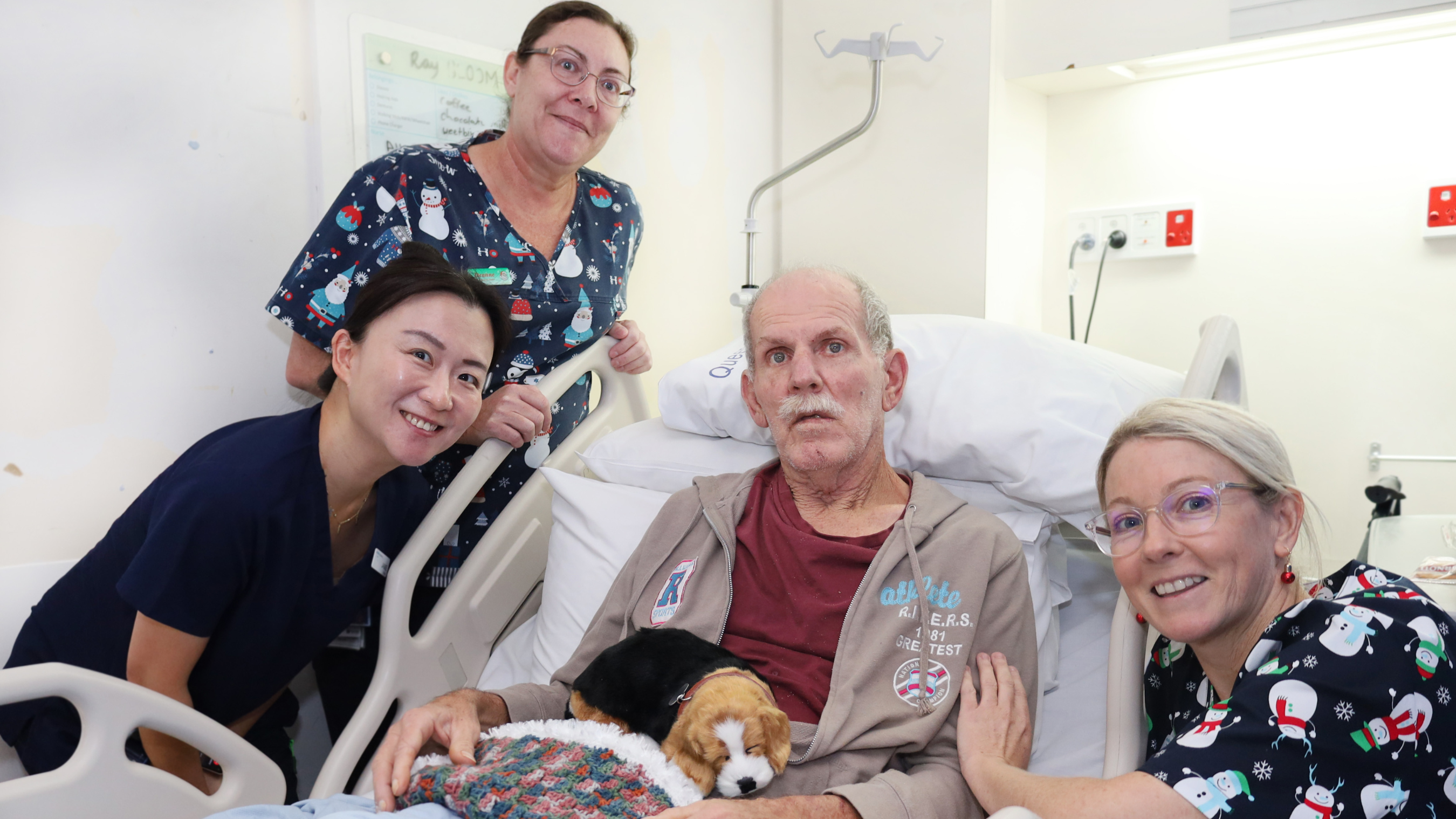
Exciting change is coming to Ward 4B, where the introduction of life-like therapy pets is making a world of paw-sitive difference to patients, their families, and staff.
Launched in partnership with Dementia Australia, the Therapy Pets project was implemented by Nurse Unit Manager (NUM) Kelly Rose, who was inspired by a past patient at the ward.
Introduced as part of a larger scope of future-focused care improvement initiatives, Kelly and her team are proving that embracing new healthcare technologies can significantly enhance outcomes for complex patients.
“When people come from their home to an unfamiliar hospital environment, they are away from their families and that can be really unsettling. We manage a lot of complex patients on this ward, so I’ve been looking at how we can better support those patients and better educate our staff to understand these different types of illnesses.”
On 12 December, dementia patient Ray (pictured) was the first patient to be introduced to his own therapy pet, and the effect was instantaneous.
“Ray is a long stay patient and had been set up on a 1:1 special with an AIN [Assistant in Nursing]. He was quite unsettled, wasn't sleeping at night, and he was very agitated first thing in the morning,” Kelly explained.
“Since we introduced them this morning, we haven't had a special with him and he's been completely settled with no behavioural issues.”
Ray immediately took to his new pet, and in a heartwarming encounter, affectionately named him Dunstall in honour of one of his favourite former football players.
Wife Liz had been at Ray’s bedside throughout his stay and couldn’t believe the difference the puppy had made.
“She had never seen Ray so settled when she comes to visit. She was really impressed,” said Kelly.
The pet is equipped with realistic fur, and the weight and feel of a puppy, while emulating lifelike breathing abilities that help induce a sense of calm and connection with patients.
“If we can reduce the risk of behaviours and reduce the need for specialling, we want to invest in that. In the scheme of it all, it’s only $50 for one pet, which is not a big outlay.”
The team are looking at a string of new innovative approaches, including the integration of AI software to improve the understanding of dementia patients which will empower staff to manage complex situations, as well as investing in research and training programs, to deliver holistic, patient-centred care for those with complex needs.
As these projects advance, Kelly and her team are determined to set a new benchmark for excellence in patient management.
“We’re excited to start rolling out these projects that will help us understand dementia and the different types of diseases. That will empower staff to better manage some of those complex behaviours as well,” said Kelly.
Congratulations on this pupper-ific initiative, team! We can’t wait to see what you do next.